Today’s Current Affairs: 21st May 2024 for UPSC IAS exams, State PSC exams, SSC CGL, State SSC, RRB, Railways, Banking Exam & IBPS, etc
Table of Contents
Blood Scandal : UK

The independent investigation into the contaminated blood scandal in the UK is set to release its findings in May 2024.
- People in the National Health Service (NHS) say that this incident is one of the worst cases of bad care in their history.
- The British government plans to give more than £10 billion to people who got HIV or hepatitis from tainted blood products in the 1970s and 1980s as compensation.
- On the eve of the release, there was a vigil in Westminster to remember the victims.
- In the 1970s and 1980s, thousands of people, mostly those with hemophilia, got blood products that were tainted with HIV and hepatitis.
- The main cause was the debut of Factor VIII, a blood-clotting agent made from plasma from multiple donors, some of whom were high-risk, like US prisoners and people who use HIV drugs.
- This caused one of the worst medical disasters in terms of how many people were hurt and how many people died.
Lunar Polar Exploration Mission : Scheduled Flight In Few Years
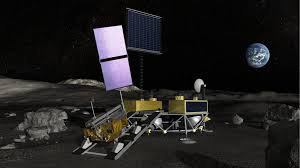
The India-Japan partnership for their joint moon mission, Lunar Polar Exploration Mission (LUPEX), is likely to take flight in a few years, the Japan Aerospace Exploration Agency (JAXA) said in an interview recently.
- Lunar Polar Exploration Mission (LUPEX) is a collaborative endeavor between Indian Space Research Organization (ISRO) and Japan Aerospace Exploration Agency (JAXA).
- The mission is scheduled to launch in 2025.
- This mission will take off aboard Japan’s H3 rocket.
- Primary Goal is to explore the moon’s southern polar region, investigating the presence of water and other elements, potentially in the form of surface ice.
- It aims to showcase innovative surface exploration technologies. The special focus is on vehicular transport and lunar night survival.
- It features both a lander and a rover. JAXA is responsible for developing and operating the rover, and ISRO for developing and operating the lander that will carry the rover.
Commission On Crime Prevention And Criminal Justice:
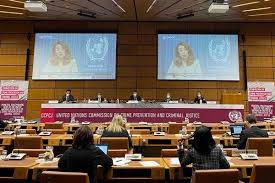
After five days of discussions to strengthen crime prevention, criminal justice responses and cooperation, the 33rd session of the Commission on Crime Prevention and Criminal Justice, came to a conclusion recently.
- Commission on Crime Prevention and Criminal Justice (CCPCJ) is a commission of the United Nations Economic and Social Council (ECOSOC).
- It acts as the principal policymaking body of the United Nations (UN) in the fields of crime prevention and criminal justice.
- The CCPCJ has 40 member states that are elected by ECOSOC and is chaired by a Bureau.
- ECOSOC provided for CCPCJ mandates and priorities in resolution 1992/22, which includes the following:
- International action to combat national and transnational crime, such as organized crime, economic crime, and money-laundering
- Promoting the role of criminal law in protecting the environment
- Crime prevention in urban areas, including juvenile crime and violence
- Improving the efficiency and fairness of criminal justice administration system
- CCPCJ also offers Member States a forum for exchanging expertise, experience and information in order to develop national and international strategies and to identify priorities for combating crime.
Project Astra:
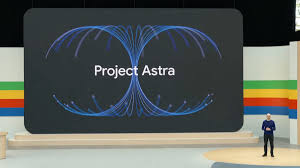
Google at the company’s annual developer conference, presented an early version of Project Astra.
- Project Astra is a new multimodal AI agent developed by Google.
- It is capable of answering real-time questions fed to it through text, video, images and speech by pulling up the relevant information.
- It can see the world, remember where one has left a thing and even answer if a computer code is correct by looking at it through the phone’s camera.
- It is more straight-forward, there is no range of emotional diversity in its voice.
- It is not limited to smartphones. Google also showed it being used with a pair of smart glasses.
- Project Astra can learn about the world, making it as close as possible to a human-assistant-like experience.
- A multimodal model is a ML (machine learning) model that is capable of processing information from different modalities, including images, videos and text.
Bacterial Pathogens Priority List : World Health Organization List
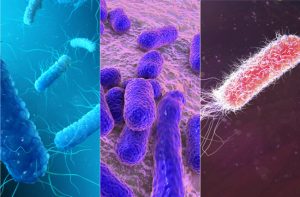
The World Health Organization (WHO) released its updated Bacterial Priority Pathogens List (BPPL) 2024.
- Bacterial Pathogens Priority List is an important tool in the global fight against antimicrobial resistance.
- In 2017, WHO developed the first BPPL to guide investment into the R&D of new antibacterials and it listed 13 bacterial pathogens (phenotypes).
- It was developed with the multi-criteria decision analysis (MCDA) method (15).
- MCDA is a decision-making scientific method that mounts and evaluates alternatives based on multiple criteria, facilitating systematic and transparent decision-making in complex options.
- The 2024 WHO BPPL covers 24 pathogens, spanning 15 families of antibiotic-resistant bacterial pathogens.
- The 2024 list categorizes these pathogens into critical, high, and medium priority groups to inform research and development (R&D) and public health interventions.
- The WHO BPPL acts as a guide for prioritizing R&D and investments in AMR, emphasizing the need for regionally tailored strategies to effectively combat resistance.
- It targets developers of antibacterial medicines, academic and public research institutions, research funders, and public–private partnerships investing in AMR R&D, as well as policy-makers responsible for developing and implementing AMR policies and programs.
Asset Reconstruction Companies:
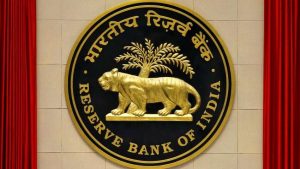
The Reserve Bank of India (RBI) has raised supervisory concerns regarding the functioning of asset reconstruction companies (ARCs).
- Asset Reconstruction Companies (ARCs) are financial institutions that acquire and manage stressed assets from banks and financial institutions. Registered under Section 3 of the SARFAESI Act, 2002, ARCs face several challenges, including issues like back-door entry of defaulting promoters, lengthy settlement processes, and non-transparent practices.
- The direction stipulates that ARCs must maintain a minimum capital requirement of Rs 300 crore, with existing ARCs given until March 31, 2026, to meet this threshold.
- Non-compliant ARCs will face supervisory action, including the prohibition on incremental business until compliance is achieved.
- ARCs with a minimum Net Owned Fund (NOF) of Rs 1000 crorecan act as resolution applicants and are permitted to invest in specified instruments, subject to certain conditions and caps on investment.
Centre Granted Citizenship Under CAA:

The Union Government has granted citizenship certificates to over 300 people who applied under the Citizenship (Amendment) Act (CAA), 2019.
- The Citizenship Amendment Rules, 2024, were notified by the Ministry of Home Affairs on 11th March 2024, that paved the way for the implementation of the CAA after 4 years since its passage by Parliament in December 2019.
- The CAA provides citizenship to undocumented migrants from 6 non-Muslim communities (Hindu, Sikh, Buddhist, Jain, Parsi, or Christian) from 3 neighboring countries (Afghanistan, Bangladesh, and Pakistan), who entered India on or before 31st December 2014.
- It also reduced the period to qualify for citizenship from existing 11 years to 5 years.
- The Act states that such minorities “shall not be treated as illegal migrants” and will be exempted from punishable sections under Section 3 of the Passport (Entry into India) Act, 1920 and the Foreigners Act, 1946.
- The insertion of Section 6B allows such migrants to obtain citizenship through registration and naturalisation.
- Section 6B (introduced by the CAA of 2019 to the Citizenship Act of 1955) outlines a specific process for acquiring Indian citizenship by naturalisation for migrants from 3 neighbouring countries mentioned.
Digital Arrest Scams : Warning

The Ministry of Home Affairs (MHA) has issued a warning about an increase in ‘digital arrest’ scams, where cybercriminals impersonate government officials to extort money from unsuspecting victims.
- The Indian Cybercrime Coordination Centre (I4C), in collaboration with Microsoft, is actively combating this organised online economic crime.
- Scammers pose as personnel from various government agencies, including the police, Central Bureau of Investigation (CBI), Narcotics Department, Reserve Bank of India (RBI), or Enforcement Directorate.
- Victims receive calls alleging their involvement in illegal activities, such as sending or receiving contraband items like drugs or fake passports.
- Claims may also involve a loved one supposedly caught in criminal activities or accidents, with the fraudsters demanding money to resolve the ‘case’.
- Some victims are subjected to ‘digital arrest,’ where they are forced to stay on video calls with the scammers until their demands are met.
- Criminals are extorting money in exchange for agreeing not to expose the false legal cases that have been constructed.
Pig Butchering Scam: Online Investment Fraud

An online financial fraud called the Pig Butchering Scam is increasing across the globe, including in India.
- Pig Butchering Scam is also known as a “sha zhu pan” scam, which is a type of online investment fraud that involves scammers creating fake online personas to lure victims into fraudulent investment schemes.\
- The term “pig butchering” comes from the scammers’ practice of “fattening up” their victims by building trust over time before “slaughtering” them and stealing their money.
- It all begins with the “host” contacting people online through social media, dating apps, or deceptive messages.
- Once they’ve found a target, known as the “pig,” the host establishes a false sense of friendship and encourages them to explore cryptocurrency trading.
- Using a fraudulent trading app, the host deceives the victim into believing they’re making profits from fabricated trades.
- Gradually, as the victim’s trust grows, the host persuades them to invest more money, a tactic referred to as “fattening the pig” before the scam is revealed.
- When victims attempt to withdraw their funds, the fake platform either makes excuses or imposes substantial fees, ultimately exposing the scam. Retrieving lost funds is exceedingly difficult due to the nature of blockchain transactions.
R21/Matrix-M Vaccine:

Vaccines manufacturer Serum Institute of India (SII) recently said it has started exports of ‘R21/Matrix-M’ malaria vaccine to Africa as part of the global fight against the disease.
- R21/Matrix-M Vaccine is a new vaccine approved for the prevention of malaria in children.
- It is the second malaria vaccine recommended by the World Health Organization (WHO),following the RTS, S/AS01 vaccine, which received a WHO recommendation in 2021.
- The vaccine was developed by the Jenner Institute at Oxford University and the Serum Institute of India with support from the European and Developing Countries Clinical Trials Partnership (‘EDCTP’), the Welcome Trust and the European Investment Bank (‘EIB’).
- This low-cost, high-efficacy vaccine is already licensed by several African countries.
Copernicus Emergency Management Service (EMS) Programme:

As part of a multi-agency effort to locate a helicopter carrying Iranian President Ebrahim Raisi that crashed in East Azerbaijan province recently, the European Union activated its Copernicus EMS rapid response mapping service at Iran’s request.
- Copernicus Emergency Management Service (EMS) Programme named after the renowned 15th-century scientist Nicolaus Copernicus, the programme is the earth observation component of the European Union’s (EU) space initiative.
- Copernicus was launched in 1998 and was earlier known as the Global Monitoring for Environment and Security Programme (GMES).
- The programme uses global data from satellites, and ground-based, airborne, and sea-borne measurement systems to provide environment-related information to researchers, policymakers, public authorities, international organisations and commercial and private users to address issues related to climate change, disaster management and agriculture, among other uses.
- The space segment uses a group of satellites, called the Sentinels and the Contributing Missions.
- It is complemented by a ground segment which includes in-situ sensors that provide access to the Sentinels and Contributing Missions data.
- Presently, the programme is implemented by EU member states with the support of the European Space Agency (ESA) for the space component and the European Environment Agency (EEA) for the in-situ component.
- Notably, data from the Copernicus programme is freely available and accessible to all.
- Active since 2012, the Copernicus EMS works on two models—on-demand mapping and early warning and monitoring—to issue warnings, risk assessments, and information on the impact of disasters worldwide, before, during, or after a crisis.
- While on-demand mapping offers detailed information for specific emergencies, early warning provides critical geospatial data through monitoring and forecasts for floods, droughts and forest fires.




